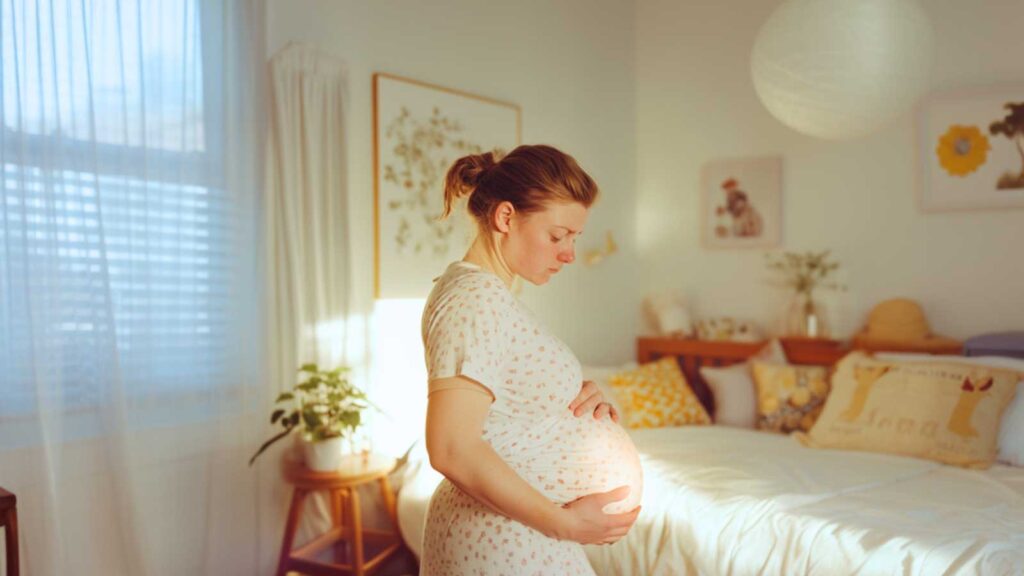
Lower back pain is the most common and frequent concern of mothers in their third trimester of pregnancy. So, if you’re already starting to feel your baby bump straining your lower back, don’t worry: it’s just your body’s response as it prepares for childbirth.
However, if it’s too much to bear, there are some things you can do to manage it to experience more comfort during your daily activities. Below are some tips from our team of OB-GYN practitioners that you can practice.
Common Causes of Lower Back Pain in the Third Trimester
To better address your lower back pain, it helps to understand what is causing it during pregnancy. That’s because not all pain is similar; there is pain you can address with simple at-home interventions, and there is pain that you must immediately alert your doctor about.
In typical cases, lower back pain in this phase of pregnancy is due to the physical changes your body is going through. Whether it’s the hips adapting to the baby’s continuous growth or hormonal changes, all of it is your body preparing you for meeting your baby. Let’s discuss the specifics of these changes that cause back pain.
1. Weight gain and center of gravity shift.
As your pregnancy progresses, you also gain weight, which contributes to back strain. This additional weight, which primarily develops around the abdomen, adds pressure to the spine and forces your lower back muscles to contract harder to support the weight.
Additionally, your center of gravity shifts forward during this period, altering your posture. As a result, you may notice an increased curvature in your lower spine, which further strains the back muscles and can lead to a dull and persistent ache.
2. Hormonal changes and loosening ligaments.
During the third trimester, your body produces higher levels of a hormone called relaxin, which is crucial in preparing the body for childbirth. Relaxin causes the ligaments and joints in the pelvis to loosen up to create a smooth passage for the baby during delivery.
However, these hormonal changes can also cause instability and reduce support in your lower back, leading to discomfort and pain. This laxity in the joints can sometimes make daily movements, like standing up or changing positions, more challenging and uncomfortable.
Increased abdominal size and muscle separation (diastasis recti).
The growing size of your abdomen during the third trimester places additional stress on the abdominal muscles. As the uterus expands, it can cause the abdominal muscles to stretch and separate along the midline, a condition known as diastasis recti.
This separation weakens the core muscles, reducing their ability to support the spine and increasing the likelihood of lower back pain. With diminished core stability, the back muscles have to work harder to maintain posture and balance, contributing to more significant discomfort.
READ ALSO: Common Pelvic Floor Disorders
While lower back pain is a standard part of pregnancy, it’s essential to differentiate between normal discomfort and symptoms that may indicate a more serious issue. If you experience numbness in your legs, difficulty walking, or severe and persistent pain, consult your healthcare provider to rule out other potential complications.
Tips for Relieving Back Pain During the Third Trimester
During the third trimester, lifestyle adjustments, therapeutic exercises, and self-care strategies can often relieve lower back pain. Here are several practical methods you can try to alleviate discomfort and maintain better overall mobility.
1. Physical therapy and exercises.
Engaging in targeted physical therapy exercises can help strengthen the lower back and improve flexibility, reducing pain and preventing further strain. Safe and practical exercises for pregnancy include pelvic tilts, cat-cow stretches, and prenatal yoga poses.
These movements support your lower back, enhance core stability, and promote better posture. To ensure safety and effectiveness, perform these exercises under the guidance of a qualified physical therapist or prenatal exercise instructor.
2. Adjust your posture and use supportive gear.
Proper posture is essential for minimizing lower back strain during pregnancy. During the third trimester, you must consciously stand and sit with your shoulders back and your spine straight. It also helps to keep your core actively engaged so that your mid and lower spine is supported.
You can also explore using supportive devices like maternity belts, which can provide extra reinforcement for your lower back and abdomen. This additional support can lift pressure on your back muscles so they don’t strain too much.
Additionally, when sitting, place a cushion or rolled-up towel behind your lower back for extra lumbar support, and avoid crossing your legs, as this can strain the lower back further.
3. Get a massage
Prenatal massage can effectively reduce lower back pain by relieving muscle tension and promoting relaxation. Seek a certified prenatal massage therapist who understands pregnant women’s needs.
4. Balance your activities with ample rest periods.
While staying active during pregnancy is essential, finding a balance between movement and rest is equally important. Gentle activities like walking or swimming can keep your muscles engaged and reduce stiffness.
However, avoid prolonged periods of standing or sitting, which can worsen lower back pain. Incorporate regular rest periods throughout the day, using pillows to support your lower back and lying on your side to reduce strain.
Comfort Until Delivery Day
Lower back pain in the third trimester is a shared experience, but it doesn’t have to impact your daily life significantly. By understanding the causes and implementing effective relief strategies, you can manage it and gain comfort during the last few weeks of pregnancy.
If your lower back pain becomes severe or starts to interfere with your daily activities, it’s essential to contact your OB-GYN for specialized advice and support.
At Roswell Ob/Gyn, we are dedicated to helping expectant mothers navigate every stage of their pregnancy with confidence and comfort. If you’re experiencing lower back pain or have any concerns about your pregnancy, please feel free to contact us. Our team is here to provide comprehensive care and guidance to support you through this exciting time.

